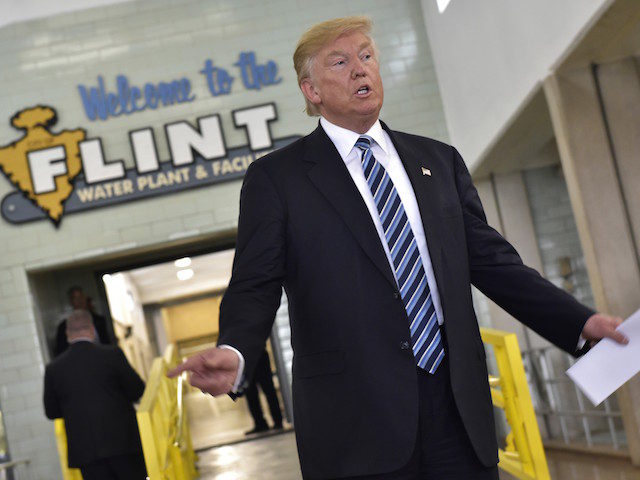The dismal forecast in the latest International Monetary Fund (IMF) World Economic Outlook reads like Republican presidential nominee Donald Trump’s talking points — namely, in its analysis that “sub-par growth at recent levels risks perpetuating itself — through the negative economic and political forces it is unleashing.”
The IMF’s World Economic Outlook expects the United States economy to continue barely growing at a dismal 1.6 percent annual rate through 2016, increase to only 2.2 percent growth in 2017, and then begin to trend downward in later years. But global economic growth, at 3.1 percent, is expected to be twice as strong as the U.S. rate in 2016, improve to 3.4 percent in 2017, and then continue to outperform.
IMF economists point to the U.S. elections and the Brexit vote as related phenomena that reflect “political discord and inward-looking politics” as the main threat to further worsening in the global economic outlook.
The IMF highlights the fact that international trade growth has dramatically slowed since 2012, and has been running at a negative -3 to -5 percent since 2015. The IMF blames this global change for a substantial slowdown of investment that “has been the primary restraint on trade growth, accounting for up to three-fourths of the slowdown.” The IMF sees this trend causing weak “productivity and growth.”
The IMF notes Donald Trump’s economic arguments, stating: “Concerns about the impact of foreign competition on jobs and wages in a context of weak growth have enhanced the appeal of protectionist policy approaches, with potential ramifications for global trade flows and integration more broadly.”
That is economist-speak for angry people that used to make a very good manufacturing wage in places like the U.S. Rust Belt and the British Midlands, and who may be gaining the political upper hand in rebelling against globalized outsourcing of their jobs to the Third World.
The IMF suggests that advanced nations could subdue this rebellion with even greater welfare and entitlement spending policies that support “trade adjustment assistance programs and effective support for retraining, skill building, and occupational and geographic mobility could play an important role in certain cases.”
After four decades of pushing globalization as a great way to improve the lives of billions of people in developing nations, the IMF seems to be listening, at least, to voices articulating the negative plight of millions of American workers.

COMMENTS
Please let us know if you're having issues with commenting.